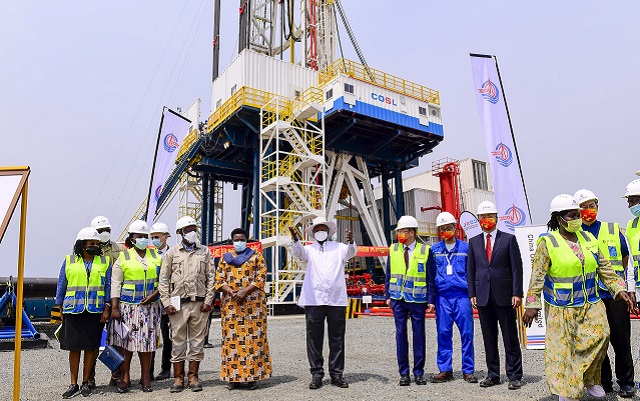
However, infrastructure gaps in remote mining areas continue to hinder resource accessibility and operational efficiency
Kampala, Uganda | JULIUS BUSINGE | Uganda’s extractive industry marked a year of significant strides in 2024, with advancements in mining and oil and gas shaping the sector’s outlook. Bolstered by government initiatives, increased investment, and an intensified focus on sustainability, the sector solidified its role as a key driver of economic growth.
Mining investments surge amid renewed focus
The country’s mining sector underwent transformative changes, underscored by the establishment of a state-owned mining company to manage government equity in mining operations. The move is part of a broader strategy to maximize resource benefits and improve regulatory oversight.
Budgetary allocations for the fiscal year 2024/25 saw Shs 41.55 billion directed to mining initiatives, including the Mineral Resource Infrastructure Development Project (MRIP). This funding aims to enhance infrastructure critical for effective monitoring and regulation.
Exploration activities intensified, particularly in the Karamoja region, with significant discoveries of gold and copper positioning Uganda as a contender in the global mineral market. Rising global demand for critical minerals, such as lithium and cobalt, further highlighted Uganda’s potential to play a pivotal role in green technology supply chains.
Policy reforms also gained traction. Amendments to the Mining and Minerals Act, 2021, streamlined licensing processes and improved transparency, boosting investor confidence. The Uganda Chamber of Mines & Petroleum (UCMP) continued to facilitate partnerships between foreign investors and local businesses, driving capacity-building initiatives.
Oil and gas projects advance despite global energy transition
The oil and gas sector recorded a projected $2.9 billion in capital expenditure for 2024, funding projects such as the East African Crude Oil Pipeline (EACOP) and the Tilenga and Kingfisher developments, according to Peninah Aheebwa, Director of Economic and National Content Monitoring at the Petroleum Authority of Uganda.
EACOP remained central to Uganda’s oil strategy, connecting crude oil from the Albertine region to the Tanzanian port of Tanga. Meanwhile, discussions around securing a refinery investor signaled Uganda’s commitment to adding value to its oil resources.
Progress was also evident in the implementation of Uganda’s Energy Transition Plan, unveiled in late 2023. The framework aims to integrate renewable energy sources and leverage hydrocarbon revenues to support the shift to cleaner energy. Collaborative agreements with global energy players showcased Uganda’s strategy to align resource exploitation with environmental commitments.
Furthermore, Uganda strengthened its regional ties within the East African Community (EAC) through harmonized policies aimed at sustainable energy development. Cross-border dialogues focused on shared resource management and environmental safeguards, underscoring the importance of collective action in the extractive sector.
Enhanced Environmental and Social Impact Assessments (ESIAs) and improved compensation mechanisms for Project-Affected Persons (PAPs) addressed community concerns, although implementation challenges persisted.
Critical minerals drive economic diversification
Demand for critical minerals essential for renewable energy technologies positioned Uganda as a potential key supplier. Increased adoption of technologies like artificial intelligence and blockchain enhanced transparency and operational efficiency, attracting foreign investment and streamlining regulatory compliance.
Nevertheless, challenges remain. Infrastructure gaps in remote mining areas continue to hinder resource accessibility and operational efficiency. Experts emphasized the need for investments in education and training to build a skilled local workforce capable of supporting the sector’s growth.
As Uganda moves beyond 2024, the extractive sector remains poised for further growth. Strategic investments, policy reforms, and a focus on sustainability will be crucial for unlocking the sector’s full potential.
 The Independent Uganda: You get the Truth we Pay the Price
The Independent Uganda: You get the Truth we Pay the Price


